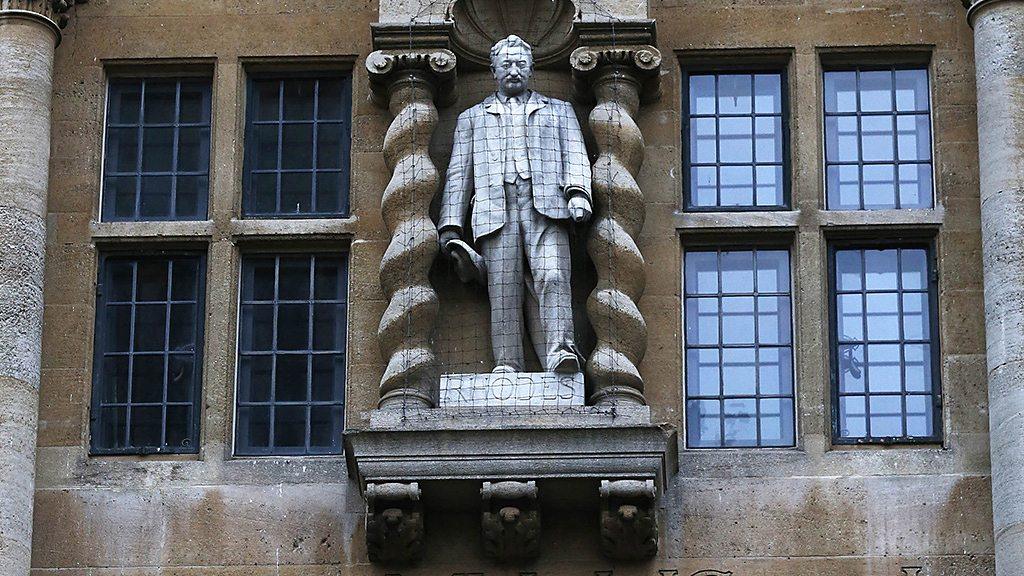Cecil Rhodes row: Oxford protesters march against statue
- Published
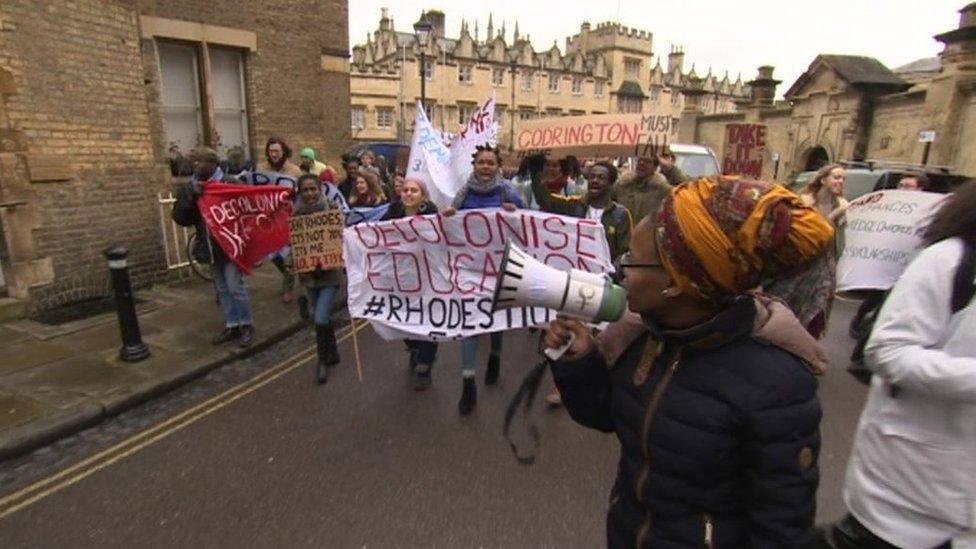
About 150 protesters took part in the march around Oxford
Campaigners have taken to the streets calling for the removal of a statue of the British imperialist Cecil Rhodes at an Oxford University college.
They want the statue torn down, arguing that Rhodes, a 19th Century businessman and politician in southern Africa, represented white supremacy.
About 150 protesters took part in the march which gathered at Oriel College, the home of the statue.
The university said it was happy to talk to campaigners about inclusivity.

The march took in sites which campaigners say have links to colonialism and racism
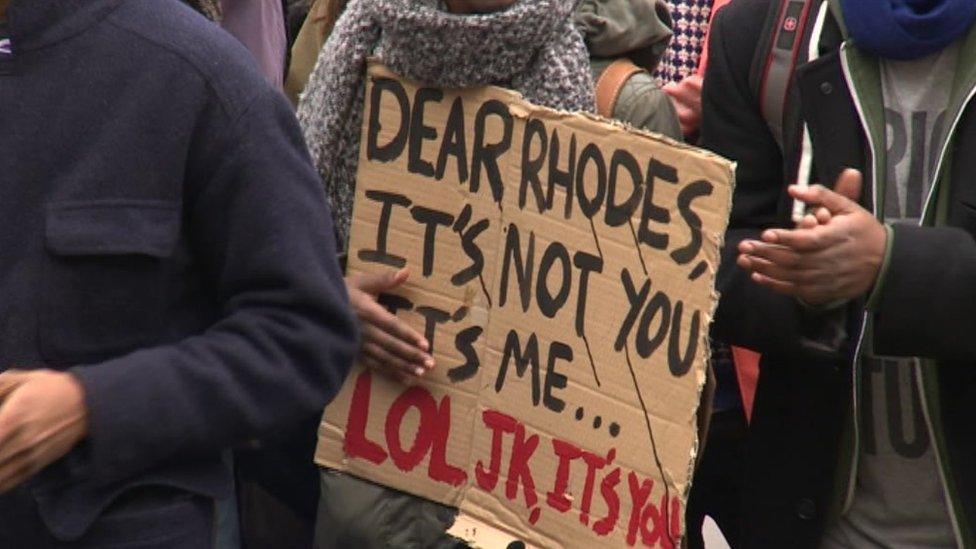
Protesters want to open a debate about colonial legacy
The Rhodes Must Fall march took in All Souls College, The Old Indian Institute, Rhodes House and Wellington Square.
Campaigners argue Rhodes' views are incompatible with an "inclusive culture" at the university.
Organiser Femi Nylander said: "We want to see an apt coherent engagement with what we've been saying.
"This is a man who was one of the founders of apartheid. To a lot of Africans he's as bad as Hitler.
"We're opening the debate about colonial legacy. We're not trying to suppress anything, we're not trying to erase history, but [we don't accept] a facade on a building on one of the most iconic streets in Oxford, with a man who went to South Africa and killed a lot of black people."
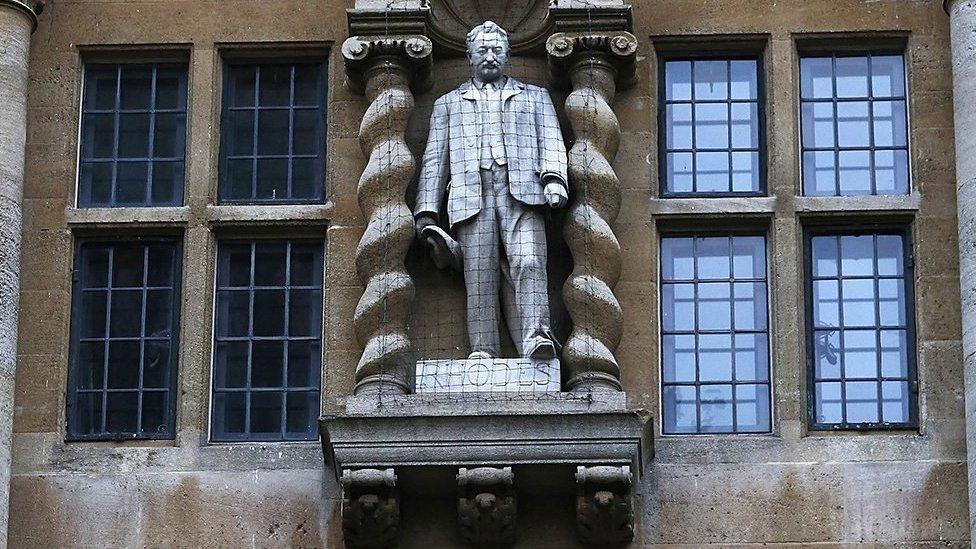
Rhodes was a student at Oxford and a member of Oriel College in the 1870s
A university spokesperson said: "We are working with black and minority ethnic students on many initiatives towards greater inclusion and representation... and we would very much like Rhodes Must Fall to be involved.
"We hope they will accept our standing invitation to meet with senior staff and help shape the plans for an ever-more inclusive university."
Rhodes was a student at Oxford and a member of Oriel College in the 1870s. He left money to the college on his death in 1902.
A scholarship programme in his name has so far been awarded to more than 8,000 overseas students.
- Published29 January 2016
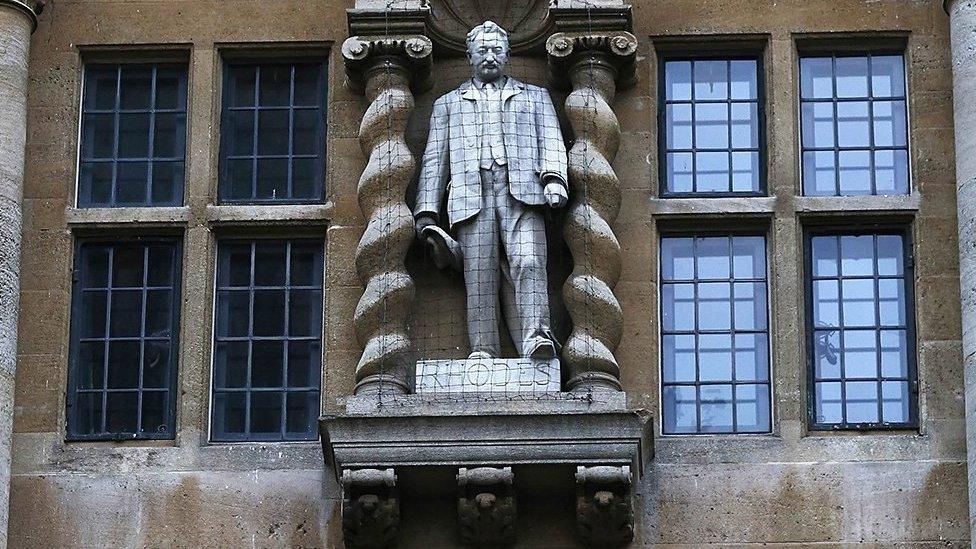
- Published20 January 2016

- Published18 January 2016
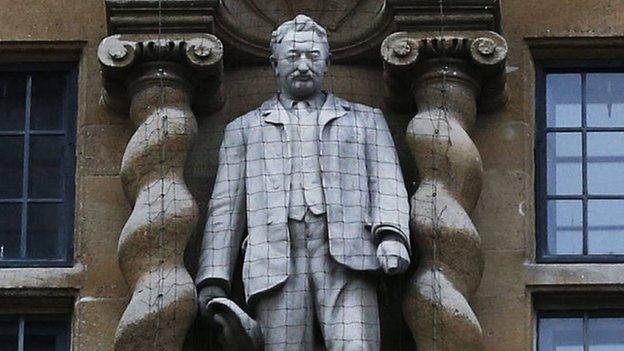
- Published13 January 2016
